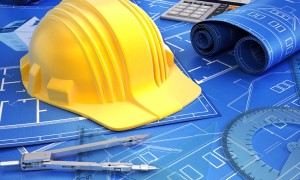Some of the most common questions involving studying concern finals, and rightfully so. For many high school students, their finals determine their success or failure in a class. That one test can be 50% of a student’s grade for an entire semester of work. Here are four steps that will help you make sure that you are getting the most out of your study sessions for high school finals.
1. Make sure you have all of your materials.
Few things are more annoying than having to continually re-gather your school materials. Make sure you have all the books and other materials you need for that class. Frankly, though, your books should simply be a reference by this time. You have been taking good notes and studying all along, so your most important materials aren’t in your books. It’s in your own words on your own paper.
You also want to make sure you have enough materials to stay put for at least 50 minutes. A writing utensil, paper on which to make new review materials, and a focused mind should be enough. If you would rather make a digital resource than a hand-written one, that will work. But before committing to a computer, consider these three benefits of hand-writing your review materials.
First, you have the added memory aid of kinesthetic learning. This is a primary way people take in information, and, believe it or not, simply writing something down can be tremendously helpful for memorization. Second, there are visual helps that come from hand-writing a new review sheet that are missed on a computer screen. For example, many people have had the experience of remembering where an answer was on a particular page. If you’ve ever thought, “I remember that It was under the picture of the alligator on the top right hand corner of the page… ,” you know what I’m talking about. That benefit is mostly lost on a scrolling computer screen. Third, successful students know the benefits of arrows, diagrams, scribbles, doodles, and every other weird hand-written elements for studying. You miss that on Microsoft Word. There is no way around it with the current state of technology.
If you have all of your materials, you are now ready for step 2, setting the environment for a successful final exam study session.
2. Set up a great environment for studying.
Many college students miss this element entirely. Consider this: how many students have you seen at Starbucks with a laptop open, Facebook in the background, gmail chat in the foreground, twitter feeds buzzing their phones, text messages coming in every three minutes, and a chemistry book in their lap? That type of studying – if it can even be called “studying” – is not particularly helpful for studying for finals. High school students need to understand this element of studying for finals before graduating. Your environment matters. It can make or break your study session.
The problem with a bad environment is that time moves at the same speed whether you are learning or not. Many a disappointed student has spent hours at the coffee shop cramming for exams but failed a test because of a poor environment. Great environments enhance studying exponentially.
Great environments, while being different for each individual, will have certain things in common. Social media will be held at bay. As difficult as that sounds, it must be done. Tell Facebook, “Goodbye,” for an hour. Twitter, texting, Voxer, and HeyTell have no place in a finals study session. More traditional media like television also needs to be shut down for a while. Set an environment where you can concentrate without the constant pull of media all around you. Music can help some students stay focused, but try to make sure it is instrumental and playing quietly in the background if at all. The quieter and more focused your environment is, the more productive your study session will be.
3. Focus your studies on the most important ideas and details.
When studying for finals, you should not be re-reading the chapters. Reading is an important part of the learning process, but it is too comprehensive to be helpful on a final exam. You want just the biggest, most important details. Birthdays, maiden names, pets names, favorite colors, and state flowers are usually not on the final exams. Essays about major thought-movements and the key thinkers involved are on final exams.
Acing your finals is dependent on whether or not you can focus your learning on the most important ideas. If you can, you are sure to score higher in less time studying. If you cannot, you are sure to know a lot of information, have spent a lot of hours in the library, and not understand why so much of what you studied wasn’t on the exam. Learning what to learn is as important as learning how to learn.
4. Study.
Get to work on what you know. Go over the notes you’ve made, make a study guide for yourself, and do the work. I recommend 50 minutes of studying at a time. Break those sections up with a ten-minute break to get the most out of your session.
5. Stop studying, sleep and dominate the final test.
There comes a point in every study session where every student has to sleep. Sometimes students forget about this. They stay up late, drinking a lot of coffee, feeling miserable, and working for a long time. Then when the test comes, they are groggy and end up writing weird things.
Don’t write weird essays. Just go to sleep. It is one of the most important things you can do during the studying process.
One high school friend of mine drew a sailboat on an essay exam because he couldn’t gather his thoughts enough to write a great essay. In case you are curious, sailboats don’t score well on essay tests. And yes, that is a true story. You can’t make that up.
If you’ve done your work, you should be set up for a great performance on your final exams. Relax, know that you’ve done your best, and dominate the test.










